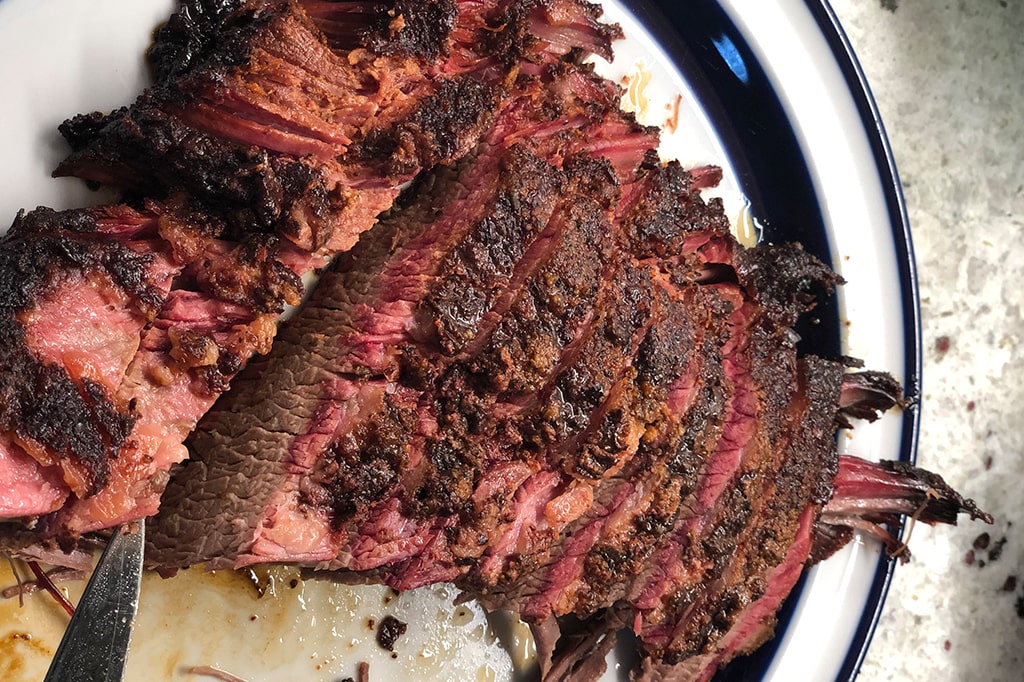Ask anyone what first comes to mind when you say barbecue, and nine times outta ten, the answer will be brisket. And don't get me wrong, I know ribs and chicken are wicked important, too, but brisket just RULES, full stop! And here's how I do mine...
If you haven't gotten tight with a butcher in your area, you must, as they will be your most important resource when you're fixin' to impress the gang. And always remember this, there's a grading level for all beef...select, choice, and prime, and the one you always want is prime, beacause you're very likely getting a superior quality of meat, both in flavor, and tenderness. It may be more expensive, but I've always said, quality doesn't cost, it pays! Hey, if you're trying to impress everbody, you better not hold back...never be penny wise, and pound foolish...now, let's get 'er done...!
Ingredients
1 whole packers cut brisket 12-20 pounds. The packers cut consists of both muscles, what I refer to as the point (fatty) and the lean.
Prepared yellow mustard, 2-3 Tbs
3 Tbs Cow Bell Hell +/-
No sugar added apple juice for spritzing during the cook
Instructions
I like prepping the night before, but at least a couple of hours before the cook will be fine, too.
- Trim the brisket of as much of the silver tendon as you can, as well as removing excess fat, but leaving a half inch, or so, to allow for natural basting.
- Lightly smear the yellow mustard all around, wiping off any excess, you just want a wet surface to apply the rub, and be aware that the mustard goes away during the cook and does not noticeably influence the flavor, just holds the rub!
- Apply Cow Bell Hell seasoning generously.
- Whether you're in your smoker, grill, or oven, the objective with brisket is to cook low 'n slow. It's a big piece of meat, so you better be prepared for a long time til done! People always ask me how long it's gonna take, I tell 'em, until it's done! Could be six hours, or it very likely could be twelve instead!
- Smoke cooking requires a lot of attention to the task...and a boatload of patience, but once you're cool with the process, it becomes second nature! So, now that you're in the pit, so to speak, whichever method of cooking you're using, you'll want to try to maintain a cook temperature of between 240 and 275 degrees, looking for a finishing temperature of 200-210 degrees, then resting for at least a half hour. I am a member of the foil brigade, which means I always wrap my briskets 2/3 into the cook, generally temping in the 160-165 degree range at that point, being sure to tent tightly, and being sure not to puncture the foil, as you want to be able to trap those finishing juices for serving.
- As a rule of thumb, I generally anticipate the cook to take anywhere from six to nine hours, depending on weather conditions, and the size of your brisket.
Bon appetite!
